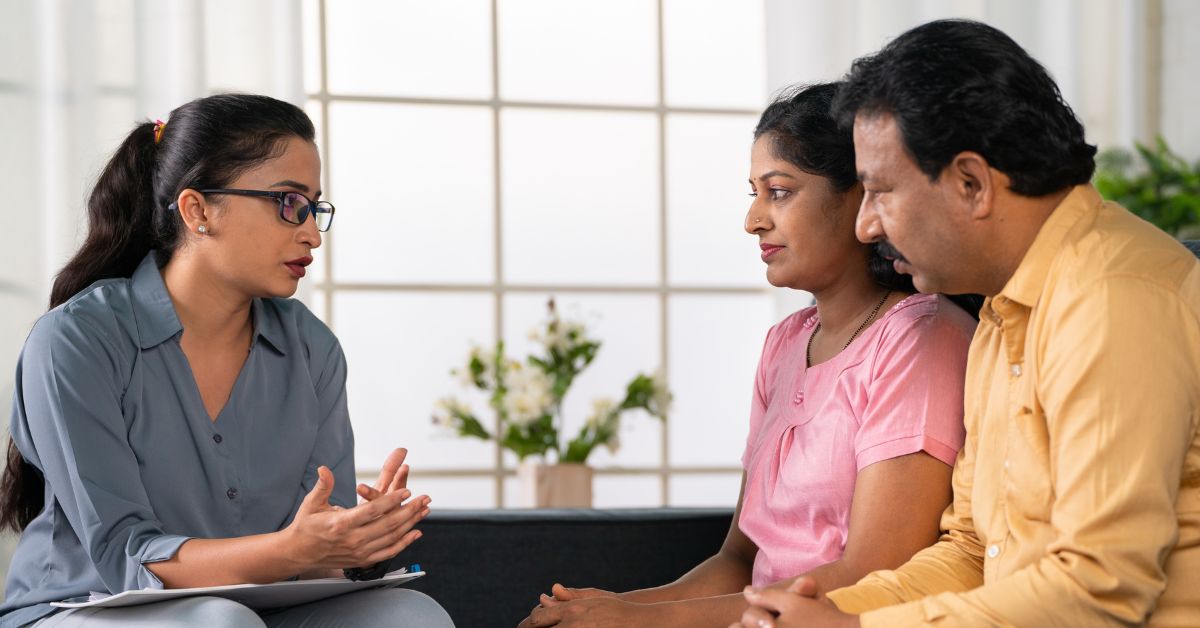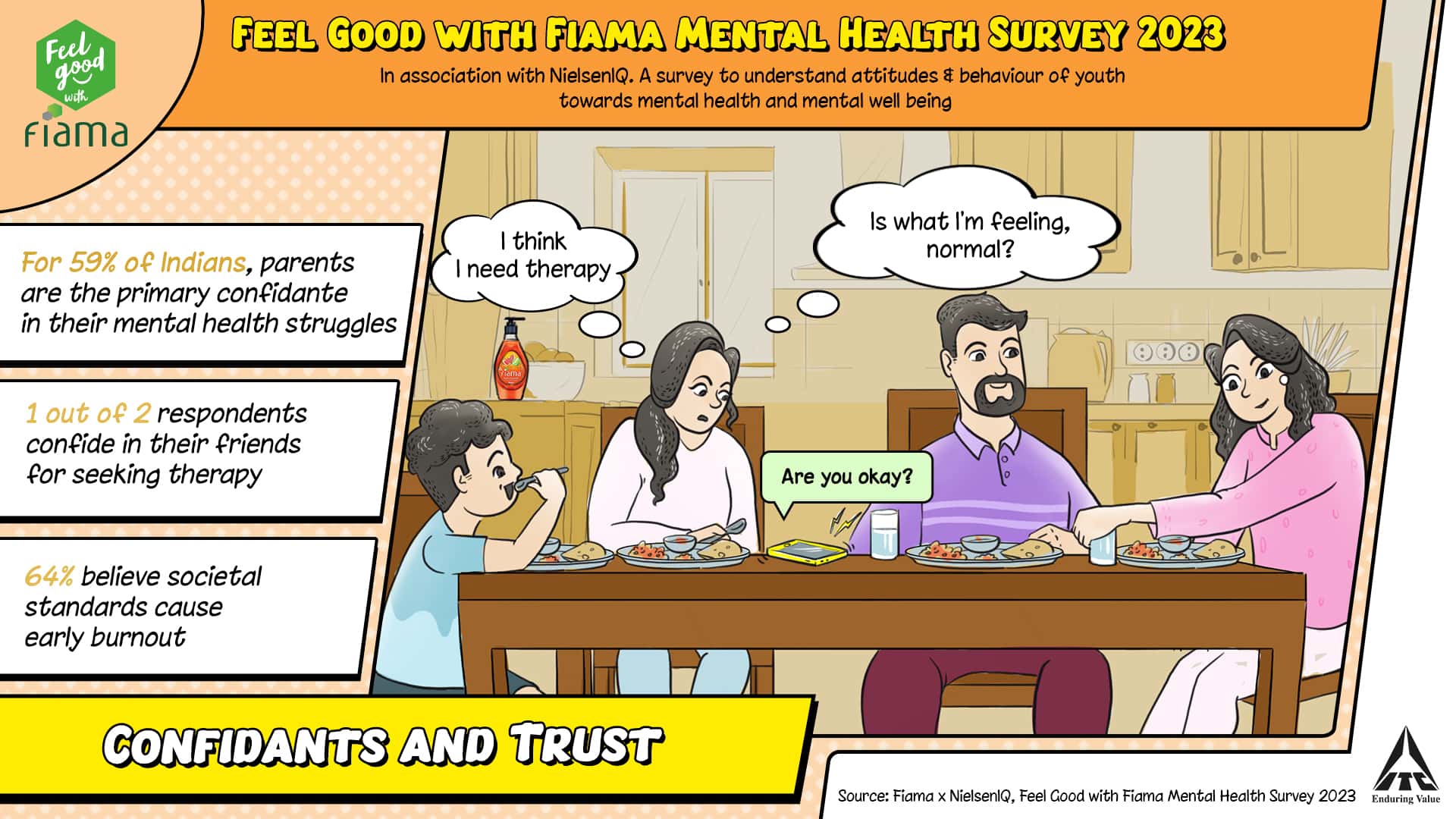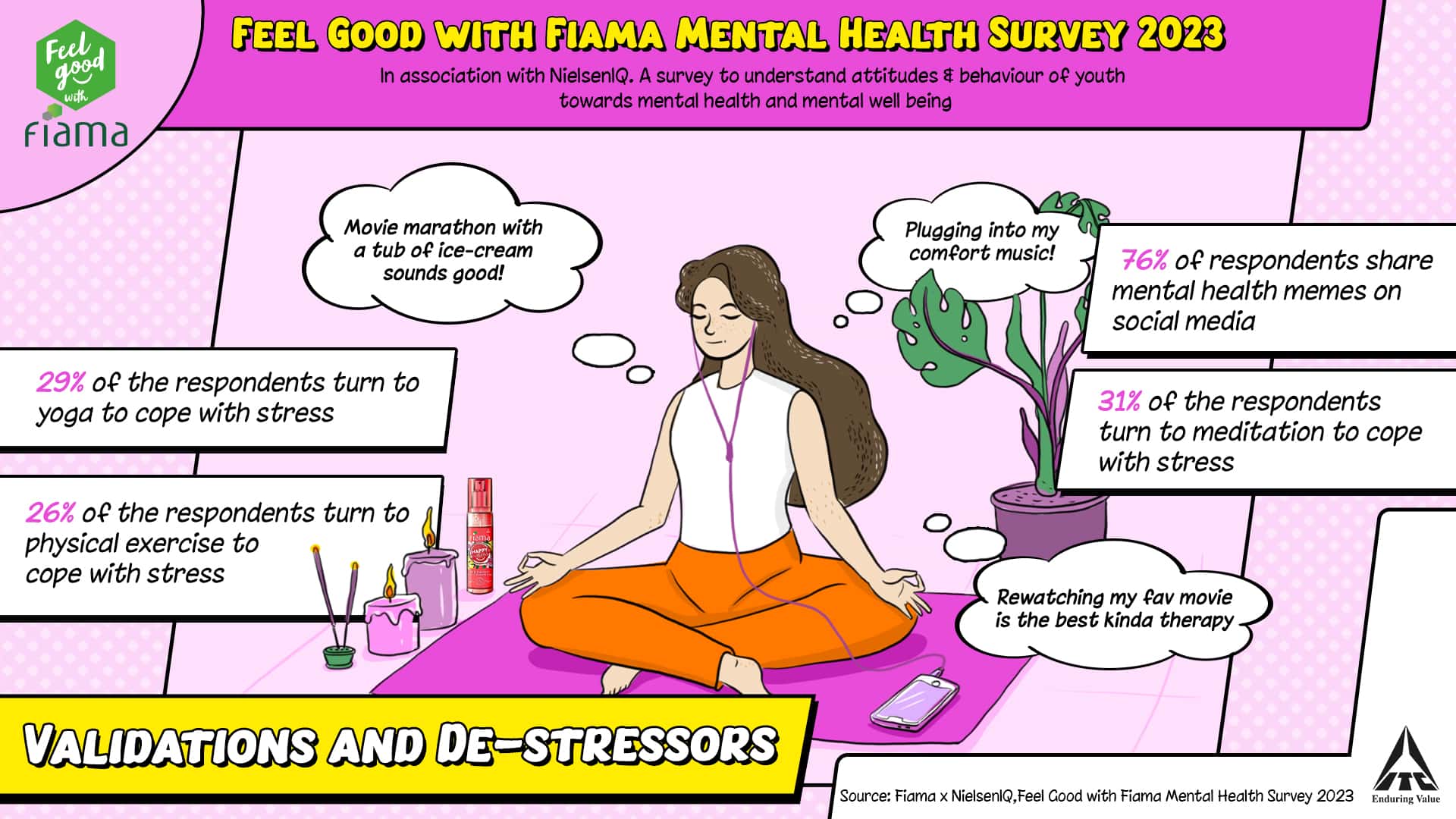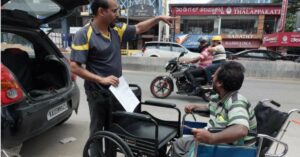Would Your Parents Support You Taking Therapy? This Mental Wellbeing Survey Reveals an Unseen Change
An ITC Fiama survey on mental health shows 80% of Indians trust their parents to back them in seeking therapy, signalling a change in how its perceived by Gen Z, millennials, and their parents.

This article has been sponsored by ITC Fiama.
Tushar (30) struggled with work and his marriage over the past year. His stressed demeanour worried his mother, who encouraged him to talk about it and consider therapy if needed. She even found therapists for him to speak to. Thanks to her support, Tushar is now in therapy and believes it’s one of the best decisions he ever made.
Tushar’s situation isn’t unique. With growing awareness about mental health, more individuals are seeking help from family and friends. Even parents are becoming more open and realising the significance of good mental health.
ITC’s ‘Feel Good with Fiama Mental Wellbeing Survey’, in its third edition, highlights the shifting attitudes in society towards mental well-being. Conducted in association with NielsenIQ, the survey indicates that seven out of 10 Indians aged 17 to 35 face mental health concerns, and over 50 percent of them are now opening up to their parents about it.
So what really are the reasons for the rising mental health conditions in millennials and Gen Z, and how are they dealing with it?
‘It’s okay to seek help’
COVID-19, according to the World Health Organization (WHO), worsened existing mental health issues and led to more reports of distress, depression, anxiety, and post-traumatic stress among many people since the pandemic began.
Therapists are seeing more patients because staying at home has strained relationships. Adolescents feel more isolated, and balancing work and home has become difficult for many due to remote work.
ITC’s ‘Feel Good with Fiama Mental Wellbeing’ survey shows that 54 percent of Indians agree that mental health is as important as physical health. Also, over 50 percent of those surveyed or their family members found therapists through social media and were seeking therapy.
The survey also shows that parents have become more alert about their children’s behaviour and have started reaching out to therapists when they see significant behavioural shifts.
Himani Verma, Director for Counselling Center from The MINDS Foundation says it’s heartening to see parents seek help for their wards. “I had a mom who reached out for her son. She identified changes in his behaviour and felt that he needed help. We’ve seen many such cases of parents reaching out. This is a paradigm shift from how parents dealt with their children’s mental health in the last few generations. Parents now don’t dismiss their child’s behaviour and have the skill to call out for help,” she says.

The survey found that 82 percent of Indians believe that their parents would be most supportive when they seek therapy. In fact, more than their siblings or friends, the respondents entrusted faith in their parents to understand their mental health struggles.
One out of two respondents confide in their friends when they feel the need to seek therapy and 81 percent believe that their friends will be supportive.

The survey also found that young adults are consciously finding ways to de-stress, through music (which is the preferred choice), physical exercise, yoga and meditation.
Furthermore, a National Institute of Health report suggested that exercise can improve your physical and mental well-being. It stated that exercise can improve mental health as it reduces anxiety, depression and negative moods. It also improves self-esteem and cognitive function.
No wonder then, that over 25 percent of respondents take to yoga and physical exercise to cope with stress. Himani adds that a walk in nature has a good impact on the neurochemical pathways, thereby improving our mental health.
The survey also shows that young India is open to seeking help and realises the importance of mental well-being and will no longer ignore it.
Sameer Satpathy, Divisional Chief Executive, Personal Care Products Division, ITC Limited, feels that while the results of the survey are encouraging, he hopes that it makes way for more awareness and better mental health support.
“It is heartening to note some of the positive shifts that have taken place in understanding mental health with the gradual increase in awareness campaigns and discussions. The survey unveils some critical facts that can definitely be a catalyst for more widespread conversations, a more nuanced understanding of the issue as well as enhancing mental health support. Fiama’s endeavour to make mental wellbeing a more proactive conversation goes beyond just provoking a thought,” he says.
He adds that their endeavour goes beyond making mental health a dinner table conversation.
To that effect, ITC Fiama in collaboration with The MINDS Foundation is continuing its work on a virtual clinic to provide affordable therapy to people seeking mental health support.
“Stress is an inevitable part of life; we have to accept the ups and downs. We have to build the necessary skills to engage and deal with these moments. In therapy, you learn essential coping strategies,” adds Himani. If you found our stories insightful, informative, or even just enjoyable, we invite you to consider making a voluntary payment to support the work we do at The Better India. Your contribution helps us continue producing quality content that educates, inspires, and drives positive change. Choose one of the payment options below for your contribution- By paying for the stories you value, you directly contribute to sustaining our efforts focused on making a difference in the world. Together, let’s ensure that impactful stories continue to be told and shared, enriching lives and communities alike. Thank you for your support. Here are some frequently asked questions you might find helpful to know why you are contributing?

The virtual clinic aims to encourage people to seek help by providing therapy online through the foundation’s qualified therapists. Since the high cost of therapy is a deterrent to many, the clinic provides help at Rs 300 per session.
You can register for a session here.
This story made me
-
97
-
121
-
89
-
167













